PREPARING FOR PRELIMINARY FLIP BOOK + AUDIO MP3
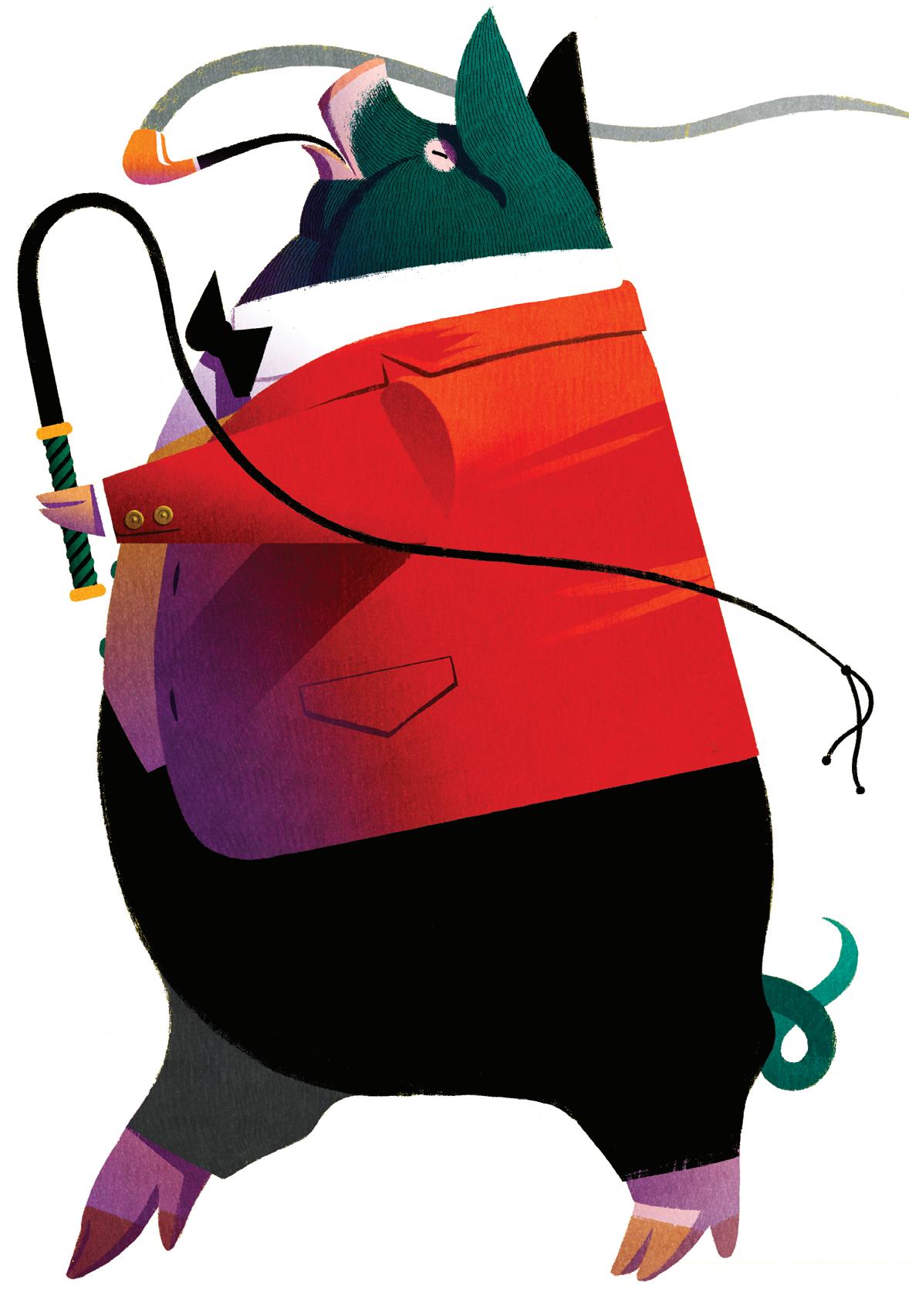

PREPARING FOR PRELIMINARY FLIP BOOK + AUDIO MP3

The Pleasure of Reading
The Greenwich Meridian is the imaginary line that is exactly at 0° longitude: every place on Earth is measured from this line, known as the Prime Meridian. Here, east and west meet. Just as the Greenwich Meridian is the meeting place between space and time, the eliGreenwich series is the meeting place of all those readers who immerse themselves in different times and spaces in these pages, discovering characters, stories, and real or imaginary worlds. It is a journey that crosses civilizations, seas, and known or unexplored lands, on its ideal route from the North Pole to the South Pole. A journey that is an adventure: the adventure of reading, of losing yourself in the pages of a book.
Information about the author, the story and the historical period.
Brief descriptions of the main characters.
The text with cultural details, brief summaries and glossary.
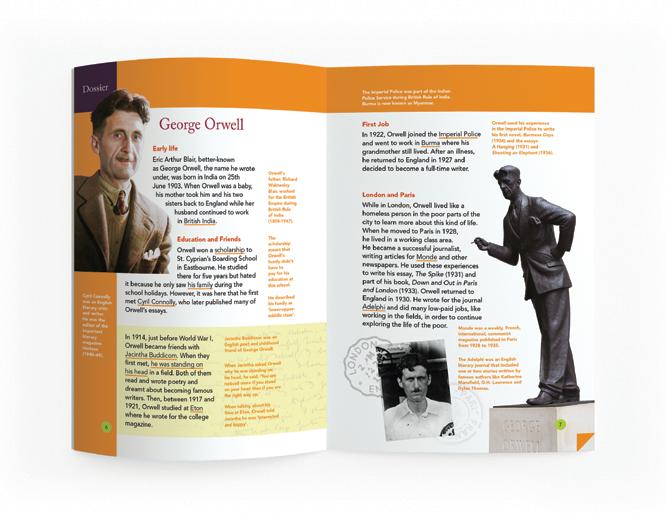
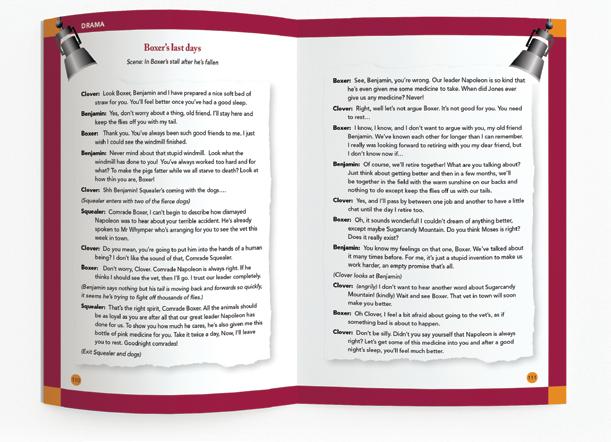
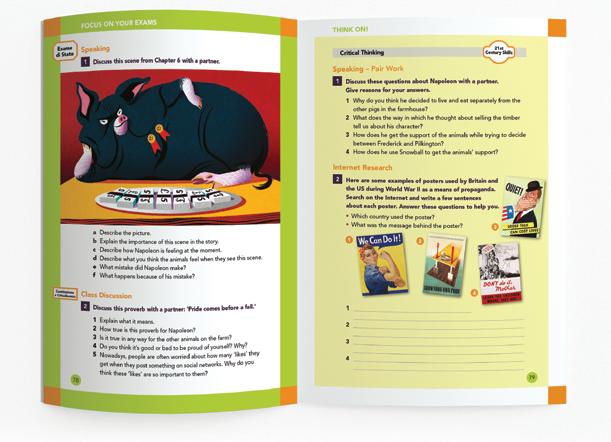
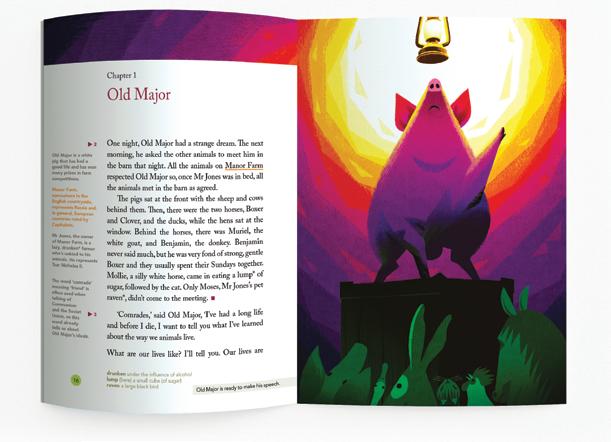

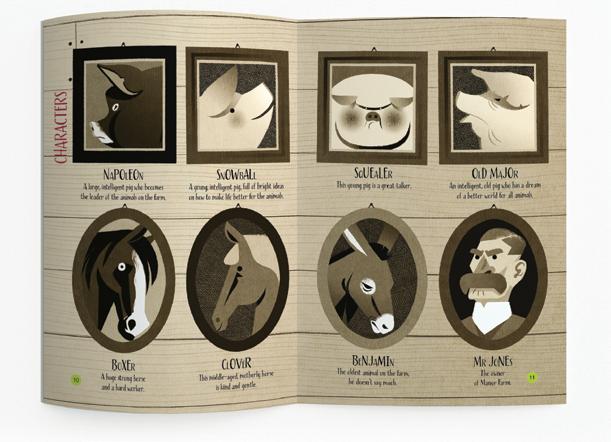
Pre-reading activities.
A wide variety of activities covering Cambridge Exam Certificates, State exams, 21st Century Skills and 2030 Agenda topics.
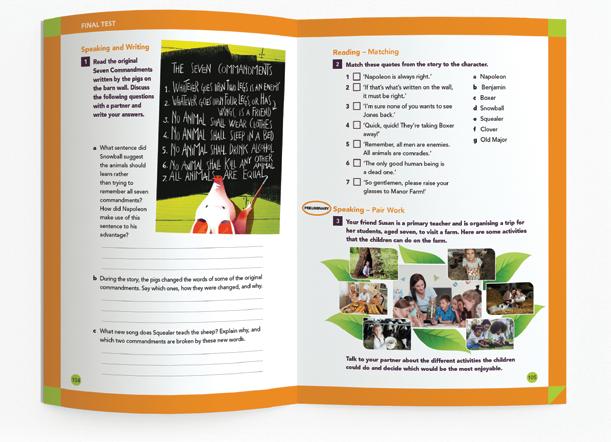
A final test to check what you remember.
A transcript of one of the most important scenes from the story to act out together in class.
Costituzione e Cittadinanza
Sir Arthur Conan Doyle The Sign of the Four
E. Gaskell, K. Chopin, K. Mansfield, V. Woolf, E.Wharton Portraits of Women
Robert Louis Stevenson The Strange Case of Dr Jekyll and Mr Hyde
Geoffrey Chaucer The Canterbury Tales
Jane Austen Pride and Prejudice
Lewis Carroll Alice in Wonderland
Oscar Wilde The Canterville Ghost
H.G. Wells, G. Orwell, E.A. Poe, S.O. Jewett, V. Woolf One Planet, One Goal
Mary Shelley Frankenstein
George Orwell Animal Farm
K. Mansfield, J. Joyce, O. Wilde, R. Tagore, M. Twain Tales of Friendship
Charlotte Brontë Jane Eyre
Oscar Wilde The Picture of Dorian Gray
H.G. Wells The Time Machine
Series Editors Paola Accattoli, Grazia Ancillani
Art Director Daniele Garbuglia
Graphic Design Emilia Coari
Production Manager Francesco Capitano
Photo Credits Shutterstock, Alamy
© 2023 ELi, Gruppo editoriale ELi
Pigini
23.83.263.0
ENG012-01
ISBN 978-88-536-3976-9
www.gruppoeli.it
Cyril Connolly was an English literary critic and writer. He was the editor of the important literary magazine Horizon (1940–49).
Eric Arthur Blair, better-known as George Orwell, the name he wrote under, was born in India on 25th June 1903. When Orwell was a baby, his mother took him and his two sisters back to England while her husband continued to work in British India.
Orwell won a scholarship to St. Cyprian’s Boarding School in Eastbourne. He studied there for five years but hated it because he only saw his family during the school holidays. However, it was here that he first met Cyril Connolly, who later published many of Orwell’s essays.
Orwell’s father, Richard Walmesley Blair, worked for the British Empire during British Rule of India (1858-1947).
The scholarship meant that Orwell’s family didn’t have to pay for his education at this school.
He described his family as ‘lower-uppermiddle class’.
In 1914, just before World War I, Orwell became friends with Jacintha Buddicom. When they first met, he was standing on his head in a field. Both of them read and wrote poetry and dreamt about becoming famous writers. Then, between 1917 and 1921, Orwell studied at Eton where he wrote for the college magazine.
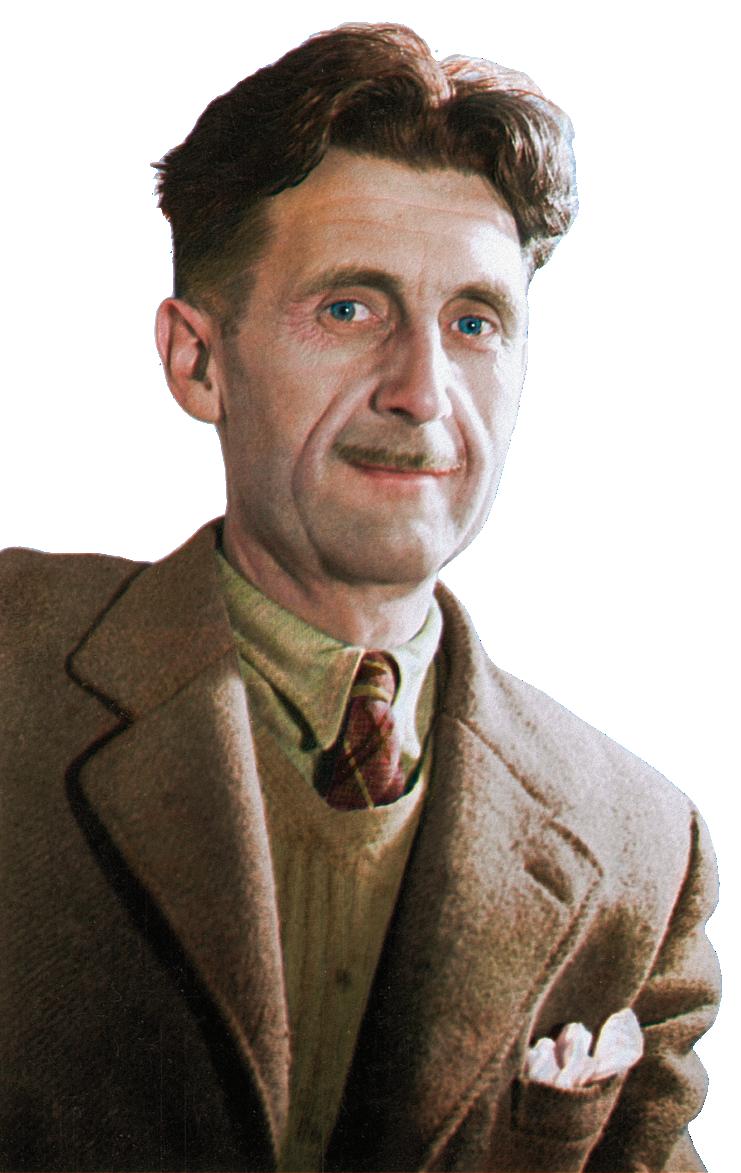
Jacintha Buddicom was an English poet and childhood friend of George Orwell.
When Jacintha asked Orwell why he was standing on his head, he said, ‘You are noticed more if you stand on your head than if you are the right way up.’
When talking about his time at Eton, Orwell told Jacintha he was ‘interested and happy’.
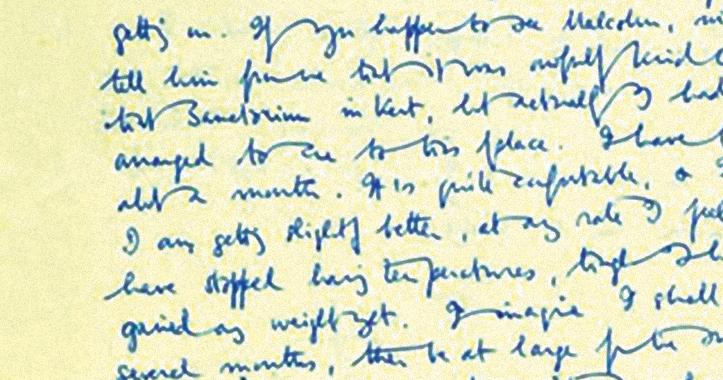
In 1922, Orwell joined the Imperial Police and went to work in Burma where his grandmother still lived. After an illness, he returned to England in 1927 and decided to become a full-time writer.
Orwell used his experience in the Imperial Police to write his first novel, Burmese Days (1934) and the essays A Hanging (1931) and Shooting an Elephant (1936).
While in London, Orwell lived like a homeless person in the poor parts of the city to learn more about this kind of life. When he moved to Paris in 1928, he lived in a working class area. He became a successful journalist, writing articles for Monde and other newspapers. He used these experiences to write his essay, The Spike (1931) and part of his book, Down and Out in Paris and London (1933). Orwell returned to England in 1930. He wrote for the journal Adelphi and did many low-paid jobs, like working in the fields, in order to continue exploring the life of the poor.
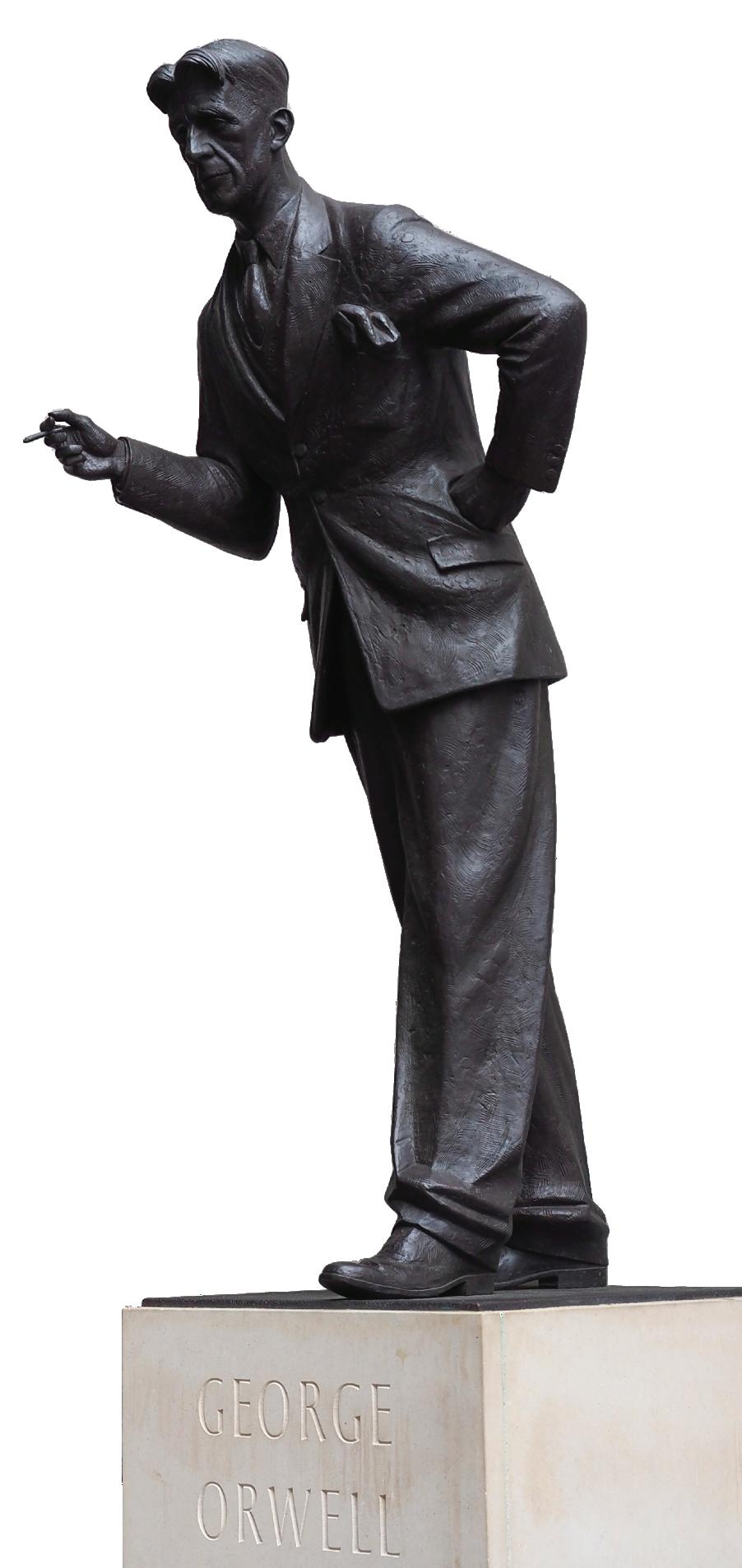
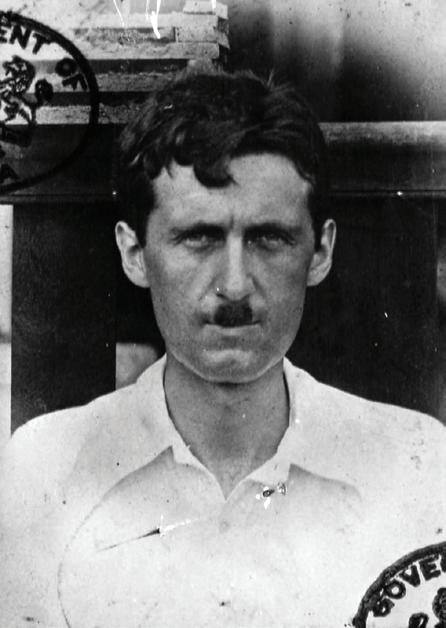
Monde was a weekly, French, international, communist magazine published in Paris from 1928 to 1935.
The Adelphi was an English literary journal that included one or two stories written by famous authors like Katherine Mansfield, D.H. Lawrence and Dylan Thomas.
The Imperial Police was part of the Indian Police Service during British Rule of India. Burma is now known as Myanmar.From 1932 to 1935, Orwell taught in London. He also continued writing, and Down and Out in Paris and London was published in 1933. He used this experience as a teacher to write his novel A Clergyman’s Daughter (1935).
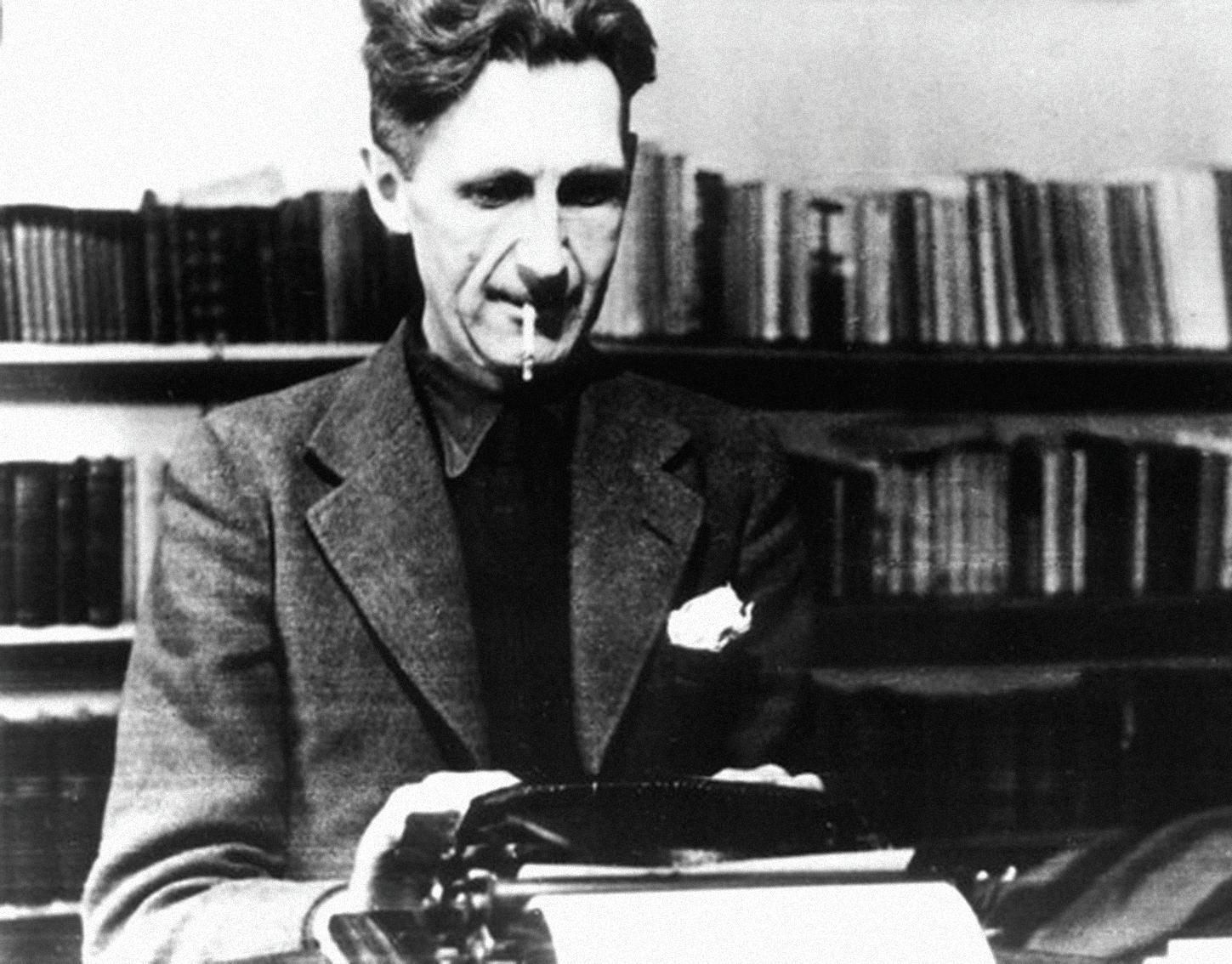
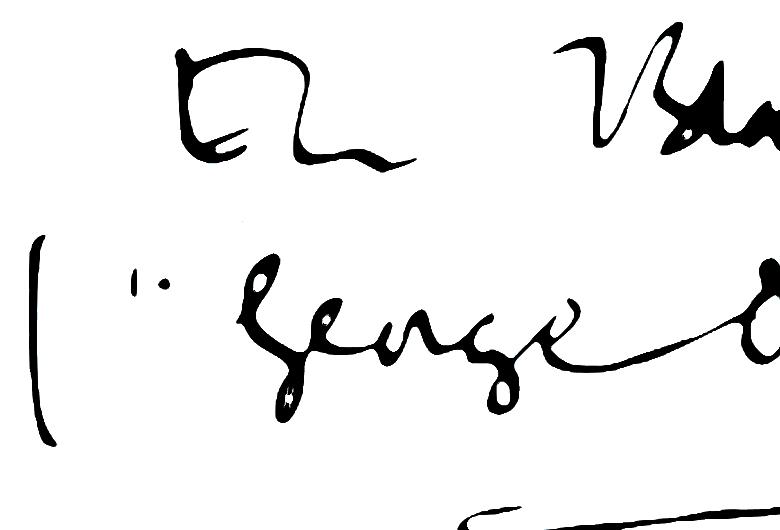
In 1936, he married Eileen O’Shaughnessy. During this period, Orwell spent time in Northern England to understand the social problems of the working class. He described these later in his book, The Road to Wigan Pier (1937).
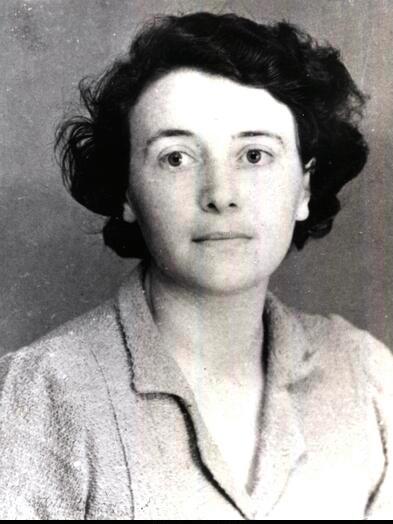
Spanish Civil War (1936-39)
From 1936, for 12 years, Orwell was watched carefully by a special unit of the police in London because of what he wrote in The Road to Wigan Pier.
In 1936, Orwell left for Spain to fight with the Republicans against the Nationalists. His wife joined him there shortly after. They finally escaped back to England in 1937, as the Spanish Police wanted to arrest them for belonging to the POUM. After this experience in Spain, Orwell wrote Homage to Catalonia (1938).
The POUM, the Workers’ Party of Marxist Unification, was a Spanish communist political party. During his time in Spain, Orwell saw how bad this kind of authority was, which led him later in life to help the British Foreign Office in anti-communist propaganda activities.
Orwell became part of the Home Guard and kept a wartime diary. In 1941, he wrote: "One could not have a better example of the moral and emotional shallowness of our time, than the fact that we are now all more or less pro Stalin. This disgusting murderer is temporarily on our side, and so the purges, etc., are suddenly forgotten."
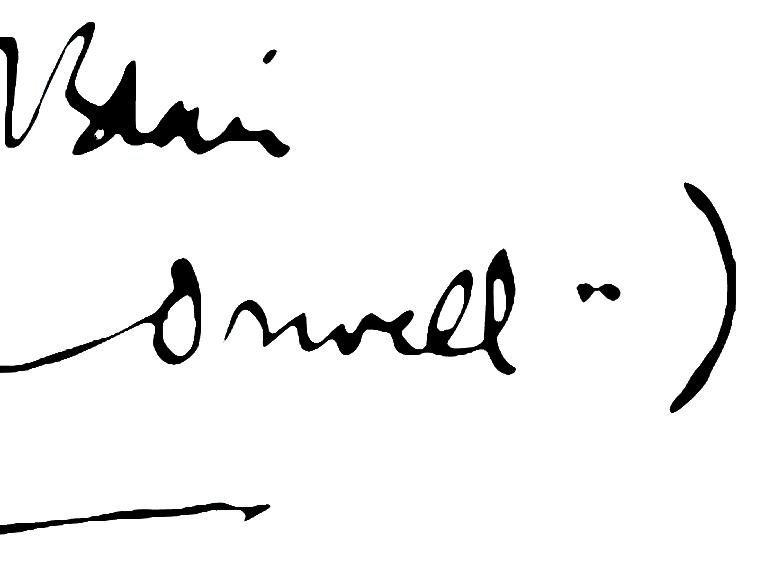
Between 1941 and 1943, Orwell worked for the BBC and wrote Animal Farm. He finished Animal Farm in April 1943, but nobody wanted to publish it as it was seen as an attack against the Soviet Regime that was an important ally in the war. Orwell also worked as a war correspondent for the Observer and travelled around Europe.
While he was away on one of his trips, his wife Eileen died. In the end, Animal Farm was published in August 1945 and was an immediate success. Orwell continued to write for various newspapers and magazines as well as starting his most famous book, Nineteen Eighty-Four, which was published in 1949.
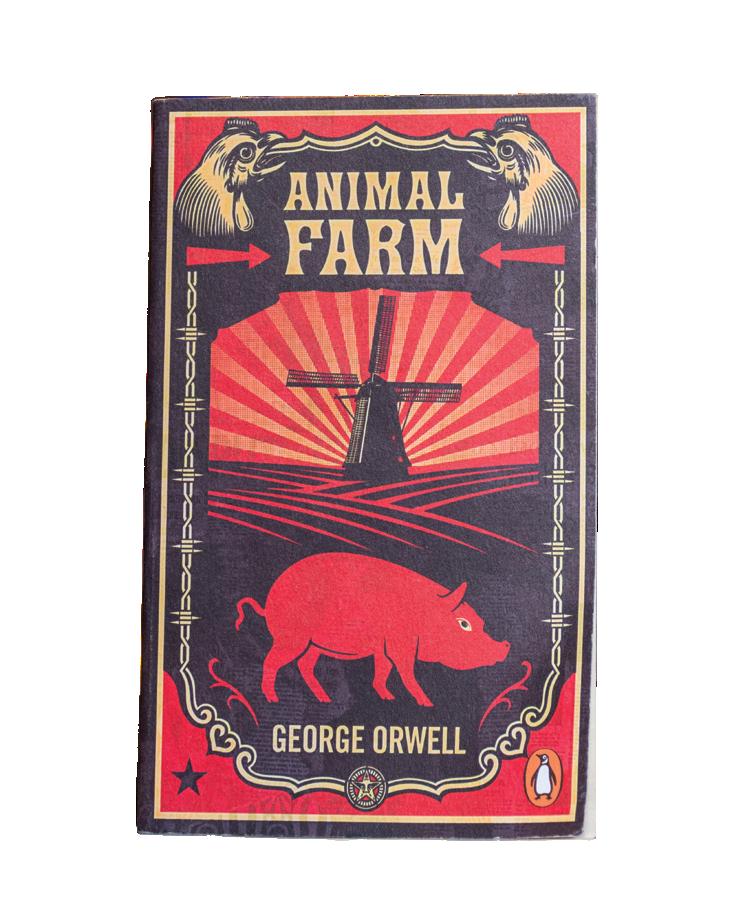
After his sister Marjorie died in 1946, Orwell went to live in a farmhouse on the Scottish island of Jura where he completed his book Nineteen Eighty-Four. Orwell thought the clean air of Jura would improve his health, but in January 1949, he left the island to see doctors in England and never went back. Around June 1949, he fell in love with Sonia Brownell. She looked after him in hospital in London, where they got married in October 1949. On 21st January 1950, Orwell died at the age of 46.
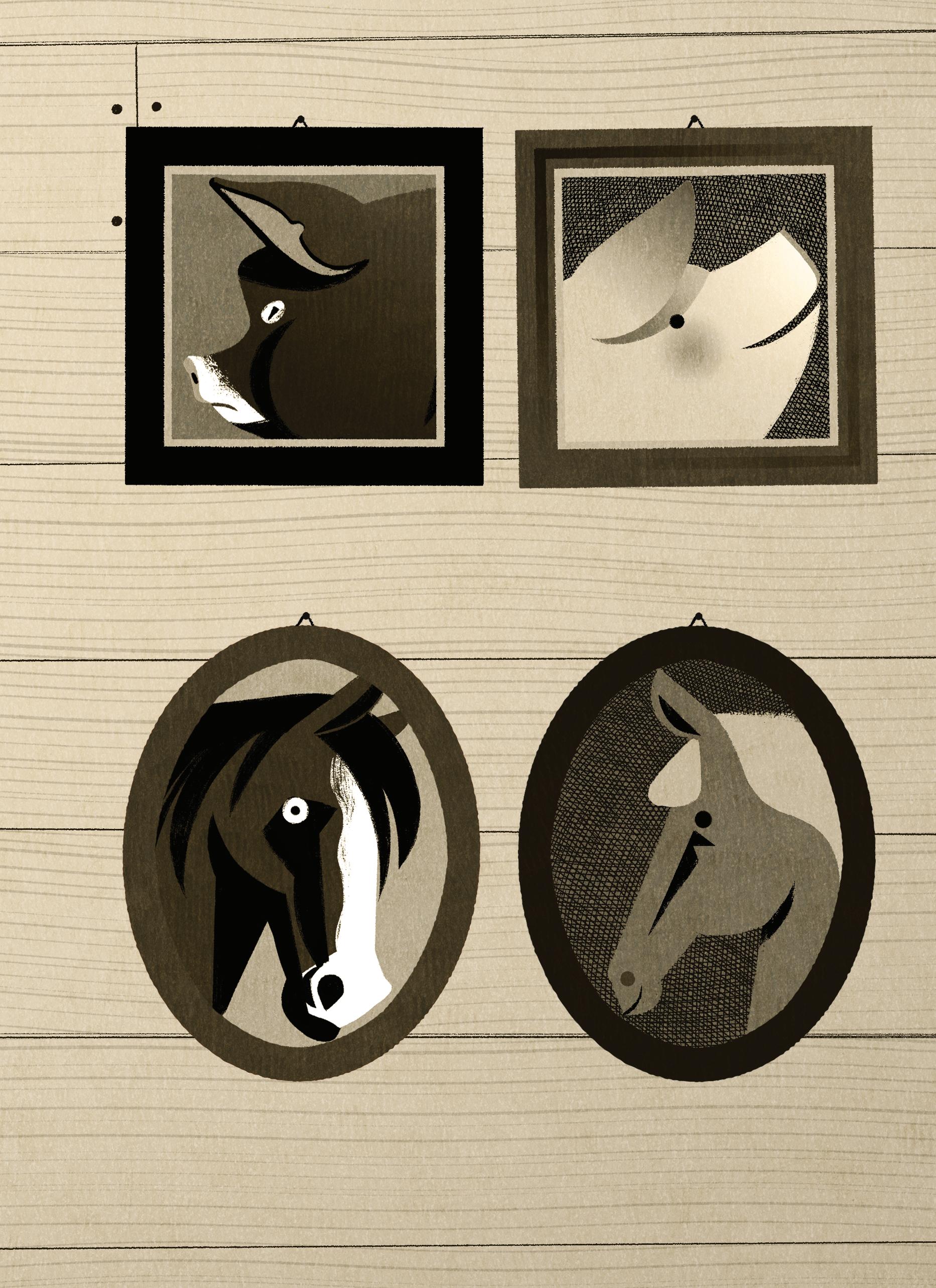
A large, intelligent pig who becomes the leader of the animals on the farm.
A young, intelligent pig, full of bright ideas on how to make life better for the animals.
A huge strong horse and a hard worker.
This middle-aged, motherly horse is kind and gentle.
This young pig is a great talker.
An intelligent, old pig who has a dream of a better world for all animals.
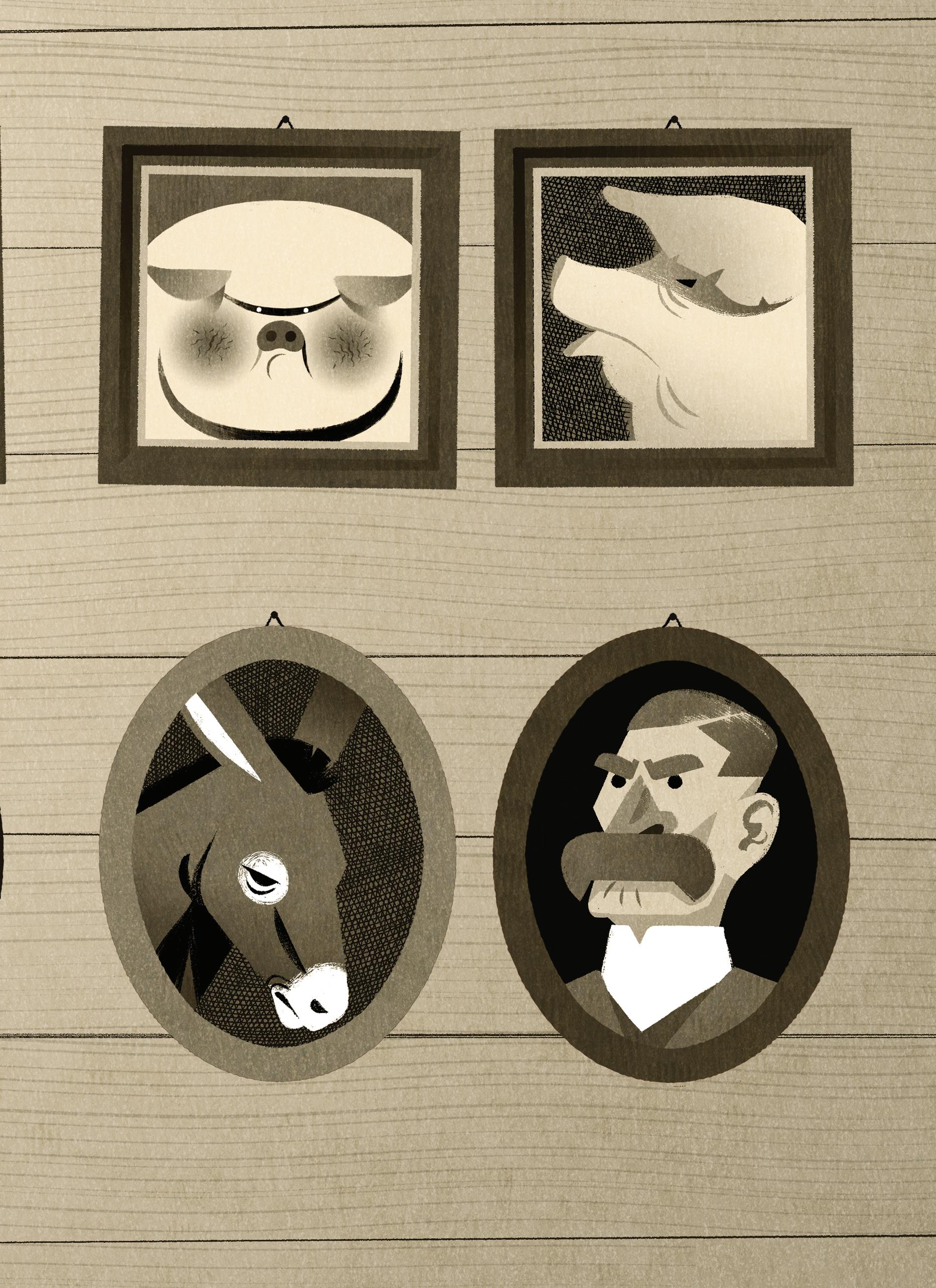
The oldest animal on the farm, he doesn’t say much.
The owner of Manor Farm.
1 Match the words with the definitions.
1 allegory
2 revolution
3 freedom
4 corruption
5 power
6 exploit
a when people bring down the government of their country
b make full use of something to your own advantage
c dishonest behaviour by those with authority
d control, authority
e a story with a hidden meaning, usually political or moral
f the right to act, speak or think as you want
2 Choose the correct word (A, B, C or D) for each space to complete the text about Animal Farm.
Animal Farm by George Orwell can be considered an allegory of the (1) of the Russian Revolution of 1917 and Stalin’s rule of the Soviet Union. It (2) with the ideas of freedom, rebellion and the corrupting nature of power in general. The novel is about a (3) of animals that takes control of the farm they live on. Mr Jones doesn’t (4) his farm well and drinks so much that he even sometimes forgets to feed his animals. (5) , the animals rebel against their cruel master and Jones has no (6) choice but to run away. Life on the farm is good (7) first, and the animals all hope that they’ll have a happier life with (8) work and more food. Then the pigs, with Napoleon as their leader, start to take advantage of the situation and the other animals soon find themselves under their power.
1 A occasion B events C examples D news
2 A deals B involves C talks D has
3 A few B little C group D lots
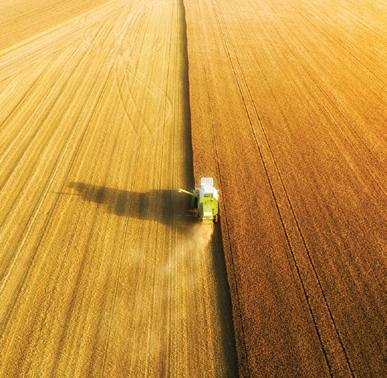
4 A lead B direct C check D manage
5 A Therefore B However C Meanwhile D Anyway
6 A one B more C other D another
7 A during B in C at D for
8 A least B less C best D most
3a Animal Farm is set in the English countryside on a farm. Work with a partner and write the correct words under the pictures below.
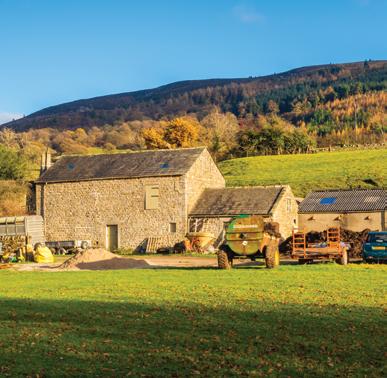
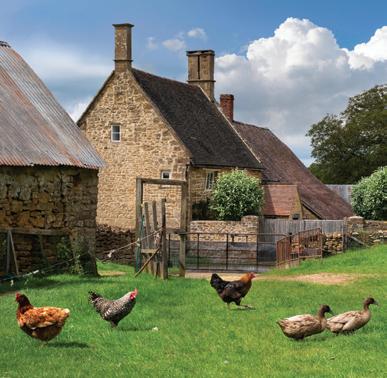
fence yard straw field barn farmhouse
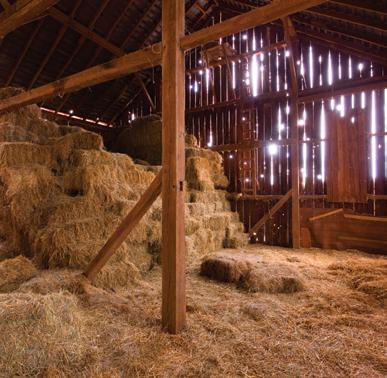

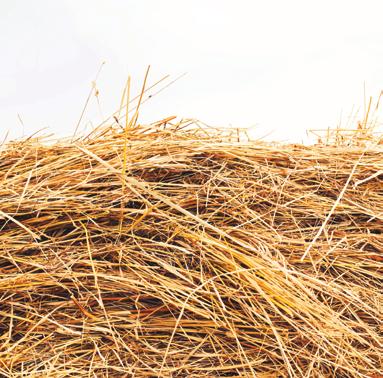
3b Complete the sentence below with the words in exercise 3a and the correct passive form of the verbs in the box. build use keep plant make put
1 Animals usually in the when it’s stormy.
2 Many baskets of .
3 That over a hundred years ago. It’s a hotel now.
4 A up last month to stop the sheep from getting out.
5 How many potatoes in that last year?
6 The now as an outside breakfast area.
4 Write a story. It must begin with this sentence: Staying with my aunt and uncle on their farm was something completely new for me last summer. Write about 100 words.
5a Look at the photo and take turns at describing it with a partner. Answer these questions to help you.
1 Where and when was the photo taken?
2 What are the people doing?
3 What’s the weather like?
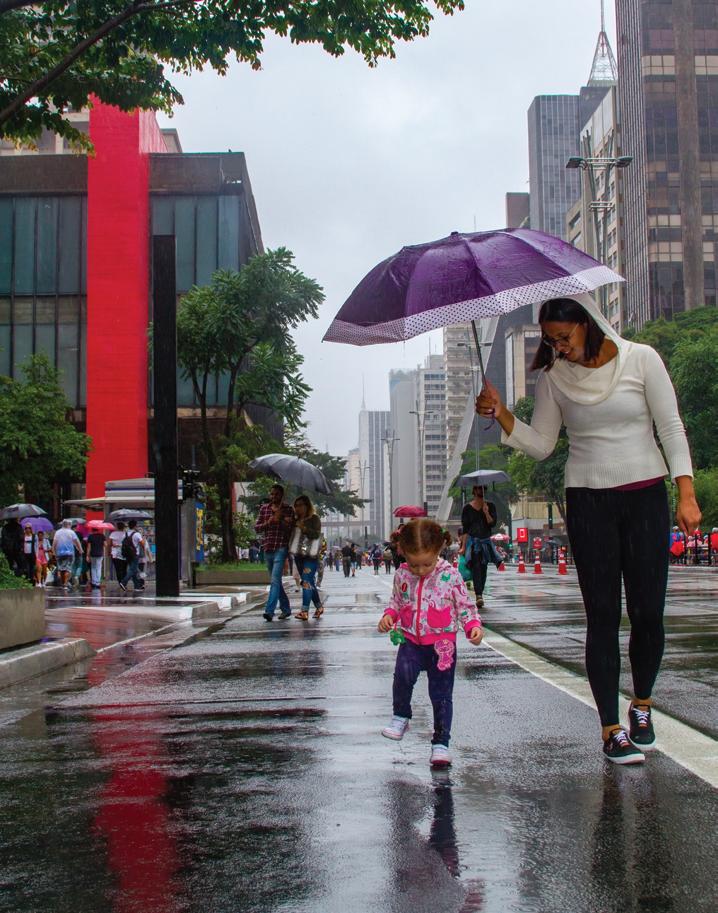
4 How do you think the people are feeling?
5 What else can you see in the photo?